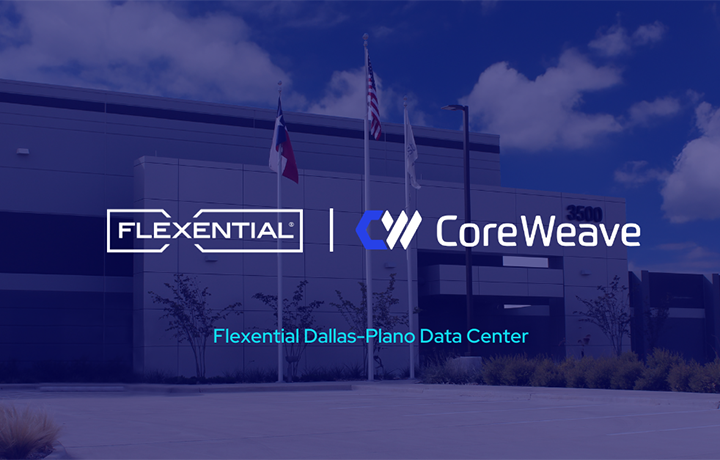Let's compare data protection vs data privacy
In this article, we will delve into the world of data protection and data privacy, exploring their definitions, significance, and the key differences between them. Moreover, we'll discuss strategies for achieving a harmonious balance between these two critical aspects of data security.

Overview of data protection and data privacy
In the digital age, where information flows freely, and data is a precious commodity, ensuring the security and integrity of personal and sensitive information has become a paramount concern. Two terms that often arise in discussions related to data security are "data protection" and "data privacy." While they might seem interchangeable, they represent distinct concepts that play crucial roles in safeguarding data and maintaining user trust.
Data Protection and Data Privacy are both aimed at ensuring the safety and proper handling of data. Data protection primarily revolves around data availability, safeguarding data from unauthorized access, theft, or damage, and ensuring its availability, integrity, and confidentiality. On the other hand, data privacy is concerned with the individual's control over their personal information, allowing them to dictate how their data is collected, used, shared, and stored.
Data protection: Safeguarding the fortress
Data protection is like the fortress walls guarding valuable treasures within. It encompasses a broad array of technological, operational, and procedural measures aimed at securing data from unauthorized access, breaches, theft, or damage. In a world where cyber threats loom large, data protection forms the shield against these digital invaders. From robust encryption methods to multi-factor authentication, data protection strategies involve implementing layers of security to ensure the confidentiality, integrity, and availability of data.
Data privacy: The gatekeeper of personal information
While data protection focuses on securing the data itself, data privacy centers on the rights and preferences of individuals concerning their personal information. Data privacy empowers individuals with the authority to control how their data is collected, used, shared, and stored. It is about respecting the autonomy of users, allowing them to make informed choices about processing personal data, granting consent, knowing the purposes of data usage, and having the option to revoke that consent. In essence, data privacy places individuals at the helm of their personal data, ensuring that they have the final say in its fate.
The importance of data protection
In the modern digital landscape, data has become the lifeblood of virtually every aspect of our personal and professional lives. From sensitive financial transactions to personal communications and business operations, data forms the backbone of our interconnected world. As our reliance on data continues to grow, so does the importance of robust data protection measures. In fact, data protection is not just a matter of prudence; it is a critical necessity that organizations and individuals alike cannot afford to overlook.
Preserving trust and reputation
One of the most compelling reasons for prioritizing data protection is the preservation of trust and reputation. In an era where data breaches and cyberattacks frequently make headlines, organizations that fail to adequately protect their data risk irreparable damage to their reputation. The fallout from a data breach can be swift and severe, resulting in a loss of customer trust, erosion of brand loyalty, and potential legal and financial repercussions. Consumers today are more aware than ever of the risks associated with sharing their personal information, and they are inclined to do business with organizations that demonstrate a commitment to safeguarding their data. By investing in robust data protection measures, organizations can cultivate a reputation for reliability, responsibility, and ethical conduct, thereby solidifying their position as trusted custodians of sensitive information.
Mitigating financial losses and legal liabilities
Beyond the intangible effects on reputation, data breaches and security incidents can lead to tangible financial losses and legal liabilities. The cost of recovering from a data breach can be staggering, encompassing expenses related to incident response, legal fees, regulatory fines, customer notifications, and potential litigation. In some cases, the financial toll of a data breach can be substantial enough to threaten the very survival of a business. Compliance with data protection regulations is not just a matter of avoiding penalties; it is a means of preventing costly breaches and ensuring that data security is woven into the fabric of an organization's operations. By implementing strong data protection measures, organizations can reduce the risk of breaches, limit financial exposure, and protect their bottom line.
Safeguarding intellectual property and competitive advantage
In addition to personal and customer data, organizations also possess valuable intellectual property, trade secrets, proprietary processes, and strategic insights that provide them with a competitive edge. These assets are vulnerable to theft and exploitation, making data protection a critical line of defense against corporate espionage and unauthorized access. Without adequate data protection measures, organizations risk losing their competitive advantage, as well as the ability to innovate and differentiate themselves in a crowded marketplace. By securing their intellectual property through robust data protection, organizations can maintain their edge and continue to drive growth and innovation.
Enabling business continuity and resilience
In the digital age, business continuity is closely intertwined with data protection. The seamless functioning of an organization's operations relies on the availability and accessibility of data. A data breach or loss can disrupt business processes, compromise critical systems, and lead to costly downtime. Robust data protection measures, including cloud data protection, regular data backups, redundancy, and disaster recovery planning, are essential for ensuring that organizations can weather unexpected disruptions and maintain operational resilience. By safeguarding data, organizations can avoid the crippling consequences of data loss and maintain uninterrupted service to their customers and stakeholders.
The importance of data privacy
In an era characterized by the relentless flow of information and the digital footprints we leave behind, the concept of data privacy has emerged as a fundamental human right and a cornerstone of ethical data management. Data privacy is not just a matter of regulatory compliance; it is a crucial safeguard that empowers individuals to retain control over their personal information, determine how it is utilized, and preserve their autonomy in an increasingly interconnected world. As technology continues to reshape the landscape of human interaction and business operations, understanding and championing data privacy has never been more imperative.
Empowering individual autonomy
At the heart of data privacy lies the empowerment of individual autonomy. Data privacy allows individuals to exercise control over their digital identities, granting them the authority to consent to data collection, specify the purposes for which their data is used, and even revoke that consent if circumstances change. By placing decision-making power squarely in the hands of individuals, data privacy ensures that personal information is not exploited or misused without explicit permission.
Fostering trust in the digital age
Trust is the currency of the digital realm, and data privacy is a key factor in building and maintaining trust between individuals and the organizations they interact with. When organizations prioritize data privacy, they send a clear message that they value and respect the privacy preferences of their users. This commitment to ethical data handling fosters a sense of trust, enhancing an organization's reputation and credibility. On the flip side, a lack of transparency and disregard for data privacy erodes trust, leading to a loss of confidence and potentially damaging the relationship between users and organizations. By championing data privacy, organizations not only comply with regulations but also cultivate a sense of trust that is essential for long-term success.
Facilitating informed decision-making
Informed decision-making is a fundamental principle of data privacy. Individuals have the right to know how their data is collected, processed, and shared, and they should be equipped with the information necessary to make educated choices about their digital interactions. Transparent privacy policies, clear consent mechanisms, and easily accessible information enable individuals to weigh the benefits and risks associated with sharing their data. When individuals are well-informed, they can make choices that align with their values and preferences, ensuring that their digital presence reflects their true desires.
Nurturing ethical data ecosystems
Beyond legal obligations, data privacy underscores the importance of fostering ethical data ecosystems. As the custodians of personal information, organizations have a responsibility to handle data with integrity, fairness, and respect. Data privacy encourages organizations to adopt ethical data practices that prioritize user rights, minimize data collection to what is strictly necessary, and ensure that data is used for legitimate purposes. By nurturing ethical data ecosystems, organizations contribute to a digital landscape where personal information is treated with the dignity and consideration it deserves. This includes cloud data privacy too!
What are the differences to know about data protection vs. privacy?
Data protection and data privacy have different scopes and focus
The key distinction between data protection and data privacy lies in their scope and focus. Data protection is more oriented toward the technical and operational aspects of securing data. It encompasses a broad range of mechanisms, technologies, and strategies designed to prevent breaches, unauthorized access, and data loss. Data privacy, however, extends beyond the technical realm of data protection tools. It delves into the legal and ethical considerations surrounding data collection, usage, and sharing.
Data protection and data privacy have a different legal framework
Data protection often operates within a regulatory framework set by laws and guidelines. For instance, the General Data Protection Regulation (GDPR) in Europe and the Health Insurance Portability and Accountability Act (HIPAA) in the United States provide a legal foundation for data protection practices. These regulations outline requirements for data handling, breach reporting, and accountability. Data privacy, while influenced by these regulations, focuses more on individual rights and consent. It places emphasis on ensuring that individuals have the power to control their personal information.
Where data protection and data privacy land in the lifecycle
Another significant difference between data protection and data privacy is their scope throughout the data lifecycle. Data protection covers the entire lifecycle, from data creation and storage to transmission and processing. It ensures that data is secure at every stage, safeguarding it against threats and vulnerabilities. Data privacy, however, primarily concerns itself with the initial collection of data. It ensures that individuals have a say in how their data is used from the very beginning, enabling them to set boundaries and dictate the purposes for which their personally identifiable information is utilized.
Data protection uses technical measures, while data privacy employs user consent
Data protection relies heavily on technical measures to secure data. Techniques like encryption, access controls, firewalls, and intrusion detection systems create a robust defense against unauthorized access and cyber threats. Data privacy, however, is rooted in obtaining user consent. It places the decision-making power in the hands of individuals, allowing them to decide whether their data can be collected, processed, and shared.
Data protection and data privacy perspectives vary
Data protection is often viewed from an organizational standpoint. It is driven by the need for businesses to secure sensitive data and maintain operational resilience. On the other hand, data privacy adopts an individual-centric perspective. It focuses on empowering users to exercise control over their personal information and make informed decisions about how their data is handled.
Data breach response vs. ethical data handling
Data protection plays a critical role in responding to data breaches and mitigating their impact. It involves identifying vulnerabilities, promptly addressing breaches, and taking measures to prevent future incidents. Data privacy, however, is more concerned with the ethical handling of data from the outset. It emphasizes transparency, consent, and respecting individuals' rights before any data breach occurs.
Operational continuity vs. user trust
Data protection ensures operational continuity by safeguarding critical data against potential disruptions caused by security breaches. It is essential for maintaining business operations and preventing financial and reputational losses. Data privacy, conversely, focuses on establishing and nurturing trust between users and organizations. Prioritizing data privacy shows a commitment to ethical data practices, which can foster long-term relationships, enhance brand reputation, and attract privacy-conscious consumers.
These key differences underscore the multifaceted nature of data protection and data privacy. While they have distinct roles and approaches, they are intrinsically connected and must work in tandem to keep data secure and create a comprehensive and effective data security strategy.
Data protection dilemma: DIY or outsource?
View a panel discussion with data protection experts Steve Hasselbach, Manager of Solutions Architects at Flexential; Will Bass, VP of Cybersecurity Cervices at Flexential; and Jeff Linso, VP of Information Technology and Security at PetroChoice, as they discuss the pros and cons of DIY or outsourcing a Data Protection infrastructure, with real-world examples and insightful information to help you choose your organization's right data protection strategy.
How to balance data privacy with data protection
Striking the right balance between data privacy and data protection requires a well-rounded and strategic approach. Achieving this equilibrium is crucial for organizations aiming to protect data, build trust, maintain compliance, and safeguard sensitive information. However, several challenges may arise on the path to achieving this balance.
Regulatory landscape: Navigating the maze
One of the primary challenges in balancing data privacy and data protection is navigating the complex and evolving landscape of regulations. Different regions and industries have their own set of rules governing data handling, authorized access, retention, and disclosure. Staying compliant with these regulations while respecting individual privacy rights requires a proactive and vigilant approach. Organizations must invest in staying informed about relevant laws, updating their processes accordingly, and conducting regular audits to ensure compliance.
Technological advancements: Keeping pace with change
The rapid pace of technological advancements introduces both opportunities and challenges for data security. While innovative technologies offer novel ways to enhance continuous data protection and privacy, they also introduce new vectors for cyberattacks. Balancing data privacy and protection requires organizations to stay abreast of emerging technologies and trends. Employing cutting-edge security solutions, such as artificial intelligence-based threat detection and blockchain-based data integrity, can help organizations stay one step ahead of potential threats.
Data management: Organized and secure
Efficient data management practices play a pivotal role in achieving the delicate balance of data privacy vs data protection. Proper data classification, storage, and retention are essential for safeguarding data while respecting user privacy preferences. By categorizing data based on its sensitivity and relevance, organizations can implement appropriate security measures and ensure that data is retained only for as long as necessary. Implementing data anonymization and pseudonymization techniques can further enhance privacy while allowing for effective data analysis.
User education: Empowering informed choices
User education is a cornerstone of achieving a harmonious data security strategy. By educating users about data privacy practices, organizations empower individuals to make informed decisions about sharing their information. Clear and concise data privacy guidelines, policies, terms of use, and consent mechanisms ensure that users understand how their data will be collected, processed, and shared. Organizations can further enhance user education through privacy awareness campaigns, workshops, and interactive tools that empower users to take control of their data.
Transparency: Building trust through open communication
Transparency is a key factor in maintaining a balance between data privacy and data protection. Openly communicating data practices, policies, data protection laws, and security measures to users fosters trust and demonstrates an organization's commitment to ethical data handling. Providing accessible avenues for users to inquire about data usage, exercise their rights, and report concerns can further strengthen the bond of trust between organizations and their users.
Conclusion
In the digital age, data protection, and data privacy are not mere buzzwords; they are essential pillars of a secure and ethical digital landscape. While data protection shields data from external threats, data privacy empowers individuals to control their personal information. These two concepts, while distinct, are intertwined and must work harmoniously to create a comprehensive data security strategy.
Organizations that prioritize both data protection and data privacy stand to gain trust, loyalty, and a competitive edge. By navigating the complex regulatory landscape, embracing technological advancements, implementing effective data management practices, educating users, and fostering transparency, organizations can achieve a delicate equilibrium between these crucial aspects of data privacy vs security.
Flexential: Our role in data protection and privacy
With our unwavering commitment to innovation, security, data protection solutions, and ethical data practices, Flexential is your partner in the journey toward a secure, compliant, and privacy-respecting digital future. Our comprehensive approach encompasses cutting-edge security measures alongside ethical data handling practices. We understand that data privacy and data protection are interconnected, and our solutions reflect this holistic understanding.
From advanced encryption techniques to secure cloud solutions, Flexential solutions are tailored to safeguard data while respecting individual privacy rights. Our commitment to regulatory compliance ensures that organizations can navigate the complex landscape of data protection and privacy regulations with confidence. By choosing Flexential, organizations not only bolster their data security but also position themselves as responsible stewards of sensitive information.
Looking to protect your IT infrastructure against external and internal threats? Learn more about Flexential Managed Security to minimize threats and conquer your security and compliance concerns.








